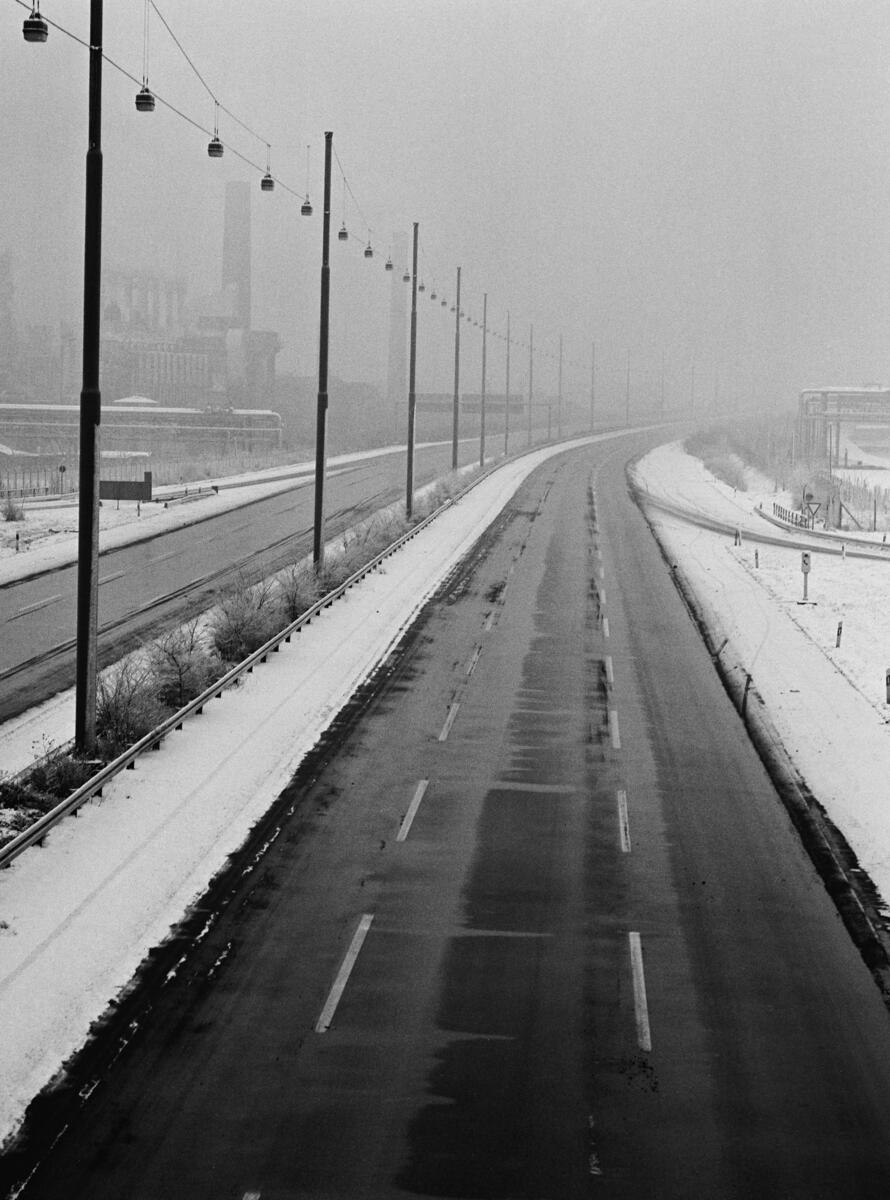Source

Source: Automobile-free Cologne/Bonn Autobahn during the Sunday ban on motor vehicles (energy crisis/oil crisis). December 2, 1973. Photo: Detlef Gräfingholt. Signature: B 145 Bild-00003458, Bundesbildstelle.
In response to the jump in oil prices, the moratorium on all oil exports to the Netherlands and the U.S., and the Arab OPEC states’ decision to reduce deliveries to all other European countries, the Bundestag passed a law on November 9, 1973, that aimed to safeguard the energy supply when imports of petroleum and natural gas were endangered or interrupted. On November 19, 1973, the government of the Federal Republic implemented the energy law and imposed a driving ban for the next four Sundays, in order to save fuel. Nonetheless, various exceptions were made and about a million special exemptions were granted, so that the measure was largely symbolic. As an additional measure, a general speed limit was introduced on November 25, 1973. The new regulations, which were to remain in effect for six months, limited vehicle speeds to 100 km/hr (62 miles/hr) on the Autobahn and 80 km/hr (50 miles/hr) on regular highways. The photograph shows a vehicle-free stretch of the Cologne-Bonn Autobahn.

Source: Automobile-free Cologne/Bonn Autobahn during the Sunday ban on motor vehicles (energy crisis/oil crisis). December 2, 1973. Photo: Detlef Gräfingholt. Signature: B 145 Bild-00003458, Bundesbildstelle.
© Bundesbildstelle